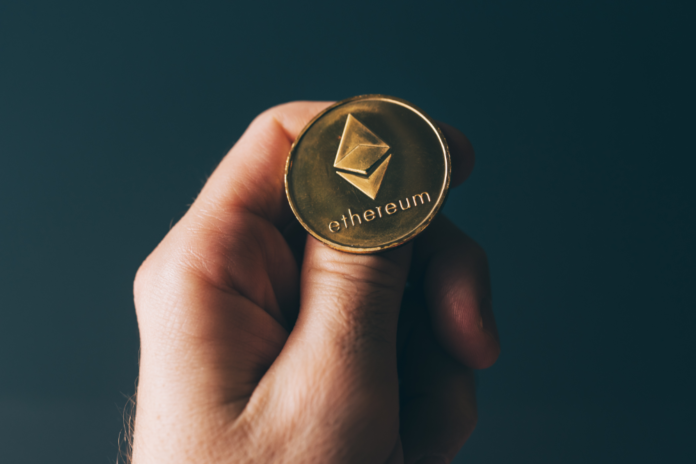
ERC20 is a set of standards on the Ethereum blockchain that allows developers to create their own tokens. In this article, we explore what ERC20 tokens are and how they work.
ERC20 tokens have made the Ethereum blockchain very popular as it provides an easier way for projects to develop blockchain products rather than building their own cryptocurrency.
Why ERC20 Tokens?
Developers of Ethereum realized that there was a trend of new tokens being created on the blockchain. However, the biggest issue with these tokens was the complications that made it difficult for the tokens to interact with each other on the Ethereum blockchain.
To solve this issue, developers created a standard set of rules all tokens on the Ethereum network had to follow.
This standard is known as ERC 20. ERC stands for Ethereum Request For Comments, and 20 stands for a unique ID number to differentiate this standard from others.
Examples of ERC20 Tokens
- Tether USD (USDT) – Tether is a stablecoin built on the Ethereum blockchain (and other blockchains – cross-blockchain). It is called a stablecoin because traditional assets like the USD dollar back its circulation. 1 Tether USD is equal to 1 US Dollar.
- Basic Attention Token (BAT) – The Basic Attention Token is a utility token built specifically for the Brave browser. The new browser focuses on privacy and rewards users while they browse. Users receive rewards in BAT and can also reward content producers in the ERC20 token too.
- OmiseGo (OMG) – OmiseGo is a financial tool that intends to make the exchange of cryptocurrencies and FIAT easier through tools for digital wallets. The OmiseGo (OMG) token is used on the OmiseGo platform to secure transactions on the platform through staking. Users receive transaction fees as rewards for securing the platform.
They are many more ERC20 tokens out there with different use cases.
How Do I Use ERC20 Tokens?
ERC20 tokens function like other elements on the Ethereum blockchain. Ether and Gas are important things you need to understand before you use ERC 20 tokens.
What Is Ether?
Ether is usually referred to as digital oil on the Ethereum blockchain. Ether is used to power transactions on the Ethereum network. A simple technical definition of Ether is that: it is the amount of computing power needed to complete a transaction.
To calculate how much Ether is needed to complete a transaction, another element called Gas was created. Ether is the amount of petrol a truck needs to make a destination and Gas is the amount of money the petrol station will charge to fill your truck.
What is Ethereum Gas?
Gas is the cost charged by the network to complete transactions. It is similar to transaction fees on the bitcoin network. Gas prices differ depending on the traffic (volume) of transactions on the Ethereum network. A less congested network means lesser Gas cost.
Also, Gas is an incentive that encourages Ethereum miners to confirm transactions quickly, like fees on the bitcoin network.
How Do I Buy ERC Tokens?
ERC20 tokens can be purchased on several cryptocurrency exchanges. You will have to identify exchanges that support the buying and selling of the specific ERC20 token.
For instance, Binance, the biggest cryptocurrency exchange at the time of writing, supports numerous ERC20 tokens.
How Do I Store My ERC20 Token?
You will need an Ethereum wallet to store your ERC20 tokens. MyEtherWallet is a web wallet that gives you comprehensive support of all ERC20 tokens.
ERC233 – The Future of ERC20?
Protocols and standards are constantly upgraded in the blockchain space. ERC233 is a proposed update that has been adopted by a few tokens on the Ethereum network. This was suggested after developers identified some bugs in the ERC20 standard.
ERC20 still dominates as the token standard of choice for many projects.
Get More Educational Content Like This:
Join Us on Telegram – @blocknewsafrica.
Also Read:
The post What Are Ethereum ERC20 Tokens? appeared first on BlockNewsAfrica.

TheBitcoinNews.com – Bitcoin News source since June 2011 –
Virtual currency is not legal tender, is not backed by the government, and accounts and value balances are not subject to consumer protections. TheBitcoinNews.com holds several Cryptocurrencies, and this information does NOT constitute investment advice or an offer to invest.
Everything on this website can be seen as Advertisment and most comes from Press Releases, TheBitcoinNews.com is is not responsible for any of the content of or from external sites and feeds. Sponsored posts are always flagged as this, guest posts, guest articles and PRs are most time but NOT always flagged as this. Expert opinions and Price predictions are not supported by us and comes up from 3th part websites.
Advertise with us : Advertise
Our Social Networks: Facebook Instagram Pinterest Reddit Telegram Twitter Youtube










